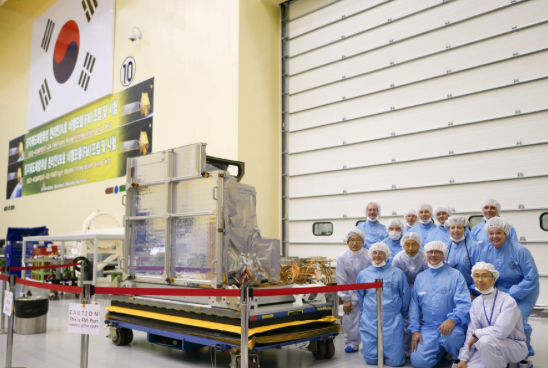
Harris Corporation (NYSE:HRS) could be responsible for saving lives. That may sound extreme, but a recent weather satellite instrument that they delivered to the the Korea Aerospace Research Institute will help forecasters safeguard people in the region from typhoons and other severe weather.

Korea Aerospace Research Institute (KARI) and Harris Corporation employees pose with the Advanced Meteorological Imager, which was built by Harris in Fort Wayne, Ind., and was recently delivered to KARI for integration into its newest weather satellite.
The Harris-built Advanced Meteorological Imager, or AMI, will be integrated into the next-generation GEO-KOMPSAT-2A weather satellite, scheduled to launch in 2018. The AMI will deliver images with three times more data and four times the resolution at refresh rates five times faster than currently available in the region.
The AMI is based on the Advanced Baseline Imager built for the U.S. National Oceanic and Atmospheric Administration’s Geostationary Operational Environmental Satellite-16 (GOES-16). GOES-16 launched aboard a United Launch Alliance Atlas V rocket in November 2016. It is performing well and providing significantly increased capabilities to the National Weather Service. The data coming from the instrument will be used operationally beginning this fall. Two other advanced imagers are in orbit on Japan’s Himawari-8 and Himawari-9 weather satellites.
Eric Webster, vice president and general manager, Harris Environmental Solutions said that South Korea is frequently threatened by typhoons and needs improved forecast accuracy to help protect lives and property. More detailed information about clouds, moisture and water vapor will make it easier to track the formation of storms. The imager can also distinguish between volcanic ash, smoke and dust, which can impact airlines by causing flight delays and cancellations.

